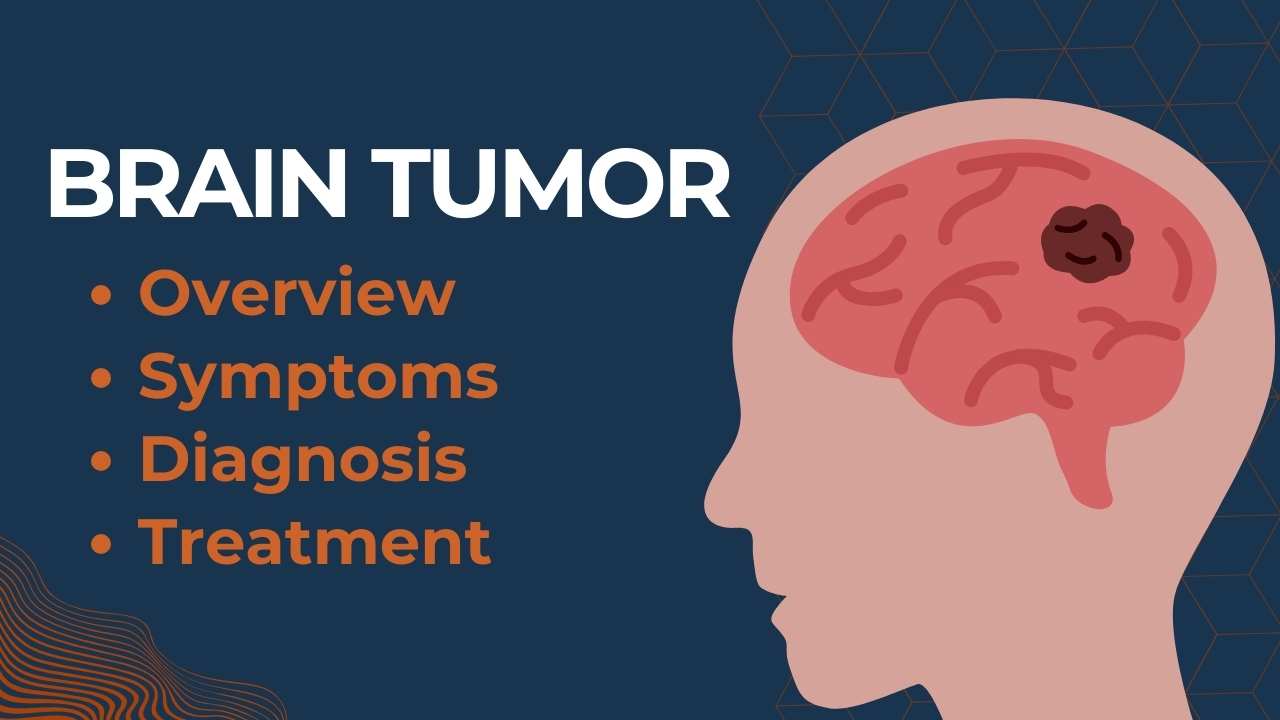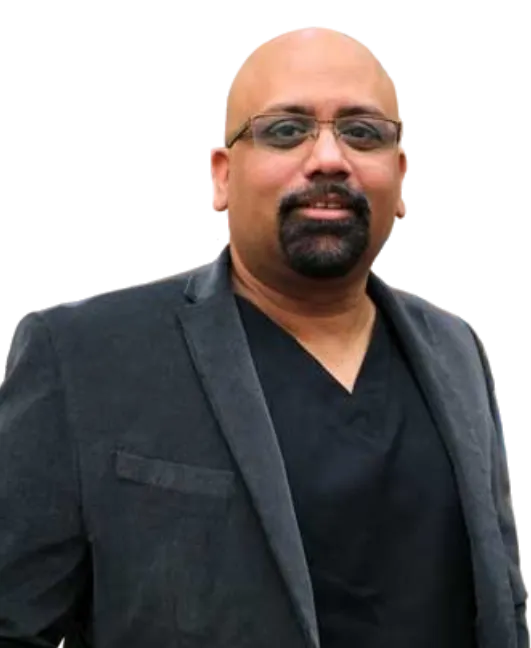Brain Tumor
A brain tumor, a mass of abnormal cells growing within the brain, can be a daunting diagnosis. These growths can be benign (non-cancerous) or malignant (cancerous), but regardless of their nature, their presence within the confined space of the skull can pose significant threats to brain function and overall health. In India, like globally, the incidence of brain and Central Nervous System (CNS) tumors is a growing concern, impacting individuals across all age groups, from children to adults.
Recognizing the critical nature of such conditions, Dr. Jaydev Panchwagh, a renowned neurosurgeon in Pune, India, brings over two decades of dedicated experience in diagnosing and treating simple to complex brain tumors. His approach combines cutting-edge technology with a profound understanding of neurosurgical intricacies, aiming for the best possible outcomes for his patients.

What is a Brain Tumor?
A brain tumor is an abnormal growth of cells within the brain or spinal cord. Unlike tumors in other parts of the body, even benign brain tumors can be serious due to the limited space within the skull. As a tumor grows, it can press on vital brain structures, leading to a range of symptoms.
Brain tumors are broadly classified into:
- Primary Brain Tumors: These originate within the brain itself. They can be benign (e.g., meningiomas, pituitary adenomas, schwannomas, colloid cysts) or malignant (e.g., gliomas, medulloblastomas).
- Secondary (Metastatic) Brain Tumors: These are cancerous cells that have spread to the brain from a primary cancer located elsewhere in the body (e.g., lung, breast, kidney).
The malignancy of a tumor, its location, and the stage of detection significantly influence the prognosis and treatment strategy. Early detection, as emphasized by Dr. Jaydev Panchwagh, is crucial for complete removal and optimal preservation of surrounding brain functions.
-
Symptoms
- Causes and Risk
- Diagnosis
- Treatment
Symptoms of a brain tumor vary widely depending on its size, location, and rate of growth. As the tumor exerts pressure on brain tissue or disrupts its function, various signs may manifest. Common symptoms, as highlighted by Dr. Jaydev Panchwagh, often include:
- Headache: Persistent, worsening headaches, often accompanied by nausea and vomiting, especially in the morning.
- Seizures: New onset of seizures in adults, or changes in existing seizure patterns.
- Neurological Deficits:
- Weakness or numbness: Often affecting one side of the body.
- Vision problems: Double vision, blurred vision, or loss of peripheral vision.
- Speech difficulties: Trouble speaking or understanding language (aphasia).
- Balance and coordination problems: Dizziness, unsteadiness, or difficulty walking.
- Cognitive and Behavioral Changes: Memory loss, personality changes, irritability, or confusion.
- Sudden Loss of Consciousness or Coma: In severe cases, due to sudden bleeding into the tumor or obstruction of cerebrospinal fluid (CSF) flow.
It’s important to note that these symptoms can also be caused by other conditions, necessitating a thorough medical evaluation by an expert.
The exact cause of most brain tumors remains unknown. However, certain factors are believed to increase the risk:
- Genetics: Some familial disorders like Neurofibromatosis type 1 and 2 are associated with a heightened genetic susceptibility.
- Exposure to certain agents: Chronic exposure to some environmental or occupational agents might play a role, though specific links are still under research.
- Age: The risk of certain brain tumors increases with age.
- Prior Radiation Therapy: Rarely, previous radiation exposure to the head can increase the risk of developing a new brain tumor years later.
Contrary to popular myths, excessive thinking or mobile phone use has not been definitively proven to cause brain tumors.
Accurate and timely diagnosis is paramount for effective brain tumor management. Dr. Jaydev Panchwagh utilizes advanced diagnostic studies to get the clearest picture of the tumor before surgery:
- Neurological Examination: A thorough assessment of vision, hearing, balance, coordination, reflexes, and cognitive function.
- Imaging Tests:
- MRI (Magnetic Resonance Imaging) with contrast: The gold standard for brain tumor diagnosis, providing detailed images of brain structures and tumor characteristics.
- CT (Computed Tomography) scan: Often used in emergency situations or as an initial screening tool.
- PET (Positron Emission Tomography) scan: May be used to help determine the aggressiveness of a tumor or detect recurrence.
- Biopsy: In many cases, a definitive diagnosis requires a biopsy, where a small tissue sample of the tumor is surgically removed and examined under a microscope by a neuropathologist. This helps determine the tumor type and its grade (how aggressive it is).
Angiography: For tumors near major blood vessels or those with a rich blood supply, angiography may be performed to map the vascular supply.
The treatment for a brain tumor is highly individualized and depends on factors such as the type, size, and location of the tumor, its grade, and the patient’s overall health. Dr. Jaydev Panchwagh emphasizes a multidisciplinary and patient-centric approach to ensure the best possible outcome. Treatment modalities include:
- Surgical Resection: The primary goal is often to remove as much of the tumor as safely possible without damaging surrounding healthy brain tissue. Dr. Jaydev Panchwagh employs state-of-the-art techniques such as:
- Microsurgery: Using high-standard operating microscopes for precise tumor removal, minimizing collateral damage.
- Neuro-navigation: GPS-like technology that guides the surgeon with real-time, 3D images of the brain during surgery, enhancing precision and safety.
- Awake Craniotomy: In select cases, especially for tumors located near critical functional areas, the patient may be kept awake during part of the surgery to monitor and preserve vital functions like speech and movement.
- Endoscopic Brain Surgery: Minimally invasive techniques for reaching deep-seated tumors with smaller incisions.
- Skull Base Surgery: Specialised techniques for tumors located at the base of the skull.
- Surgical Resection: The primary goal is often to remove as much of the tumor as safely possible without damaging surrounding healthy brain tissue. Dr. Jaydev Panchwagh employs state-of-the-art techniques such as:
- Cavitron Ultrasonic Aspirator: This advanced device uses ultrasound to fragment and aspirate tumor tissue, allowing precise, safe removal while sparing surrounding healthy brain structures.
- Radiation Therapy: Uses high-energy rays to kill tumor cells or slow their growth. It can be delivered externally or, rarely, internally (brachytherapy). Gamma Knife Radiation or CyberKnife radiation.
- Chemotherapy: Uses drugs to kill cancer cells, often administered orally or intravenously.
- Targeted Therapy & Immunotherapy: Newer treatments that target specific abnormalities within cancer cells or boost the body’s immune system to fight the tumor.
Supportive Care: Medications for symptom management (e.g., anti-seizure medications, steroids for swelling) and rehabilitation (physical, occupational, and speech therapy) are integral to recovery.
Watch this Video to Know More about Brain Tumor
Why Choose Dr. Jaydev Panchwagh for Brain Tumor Treatment?
Choosing the right neurosurgeon is a critical decision when facing a brain tumor diagnosis. Dr. Jaydev Panchwagh stands out as a leading expert in brain tumor treatment in India for several reasons:
- Extensive Experience: With over two decades of experience, Dr. Panchwagh has successfully treated a vast number of simple and complex brain tumors, catering to both adult and pediatric patients.
- Advanced Surgical Expertise: He is highly proficient in applying modern surgical techniques including advanced microsurgery, neuro-navigation, awake craniotomy, and endoscopic approaches, ensuring maximum tumor removal with minimal impact on brain function. His specialized training with renowned international experts like Prof. Seifert (Neuronavigation) and Prof. Gaab (Endoscopic Brain Surgery) underpins his mastery.
- Patient-Centric Approach: Dr. Panchwagh understands the emotional and physical toll of a brain tumor. He emphasizes detailed pre-operative discussions, sophisticated diagnostic workups, and a compassionate approach, ensuring patients and their families are well-informed and supported throughout their journey.
- Team Collaboration: He believes in a comprehensive team approach, collaborating with neurologists, oncologists, radiation oncologists, and rehabilitation specialists to provide holistic care.
- International Recognition: Dr. Panchwagh receives international referrals for complex brain and spine tumors, a testament to his global reputation and expertise. He is also a recognized teacher for DNB Neurosurgery, mentoring future neurosurgeons.
- Commitment to Education: Through the Synapse Brain and Spine Foundation, he is dedicated to patient and public education, empowering individuals with knowledge about neurological conditions.
Frequently Asked Questions (FAQs) about Brain Tumor
No. Brain tumors can be benign (non-cancerous) or malignant (cancerous). However, even benign tumors can cause significant problems due to their location within the confined skull.
The possibility of a complete cure depends on several factors, including the type of tumor, its location, how early it is detected, and whether it’s benign or malignant. Complete surgical resection is often possible for many benign tumors, leading to a cure. For malignant tumors, treatment aims for maximal safe removal followed by adjuvant therapies like radiation and chemotherapy to achieve long-term control.
Recovery varies widely depending on the tumor’s size, location, and the extent of surgery. It may involve a period of hospitalization, followed by rehabilitation to regain lost functions. Dr. Jaydev Panchwagh’s team provides comprehensive post-operative care and guidance.
There is no scientific evidence to support a direct link between excessive screen time or mobile phone use and the development of brain tumors.
If you or a loved one are experiencing symptoms suggestive of a brain tumor, or if you have recently received a diagnosis, seeking expert neurosurgical consultation is crucial. Dr. Jaydev Panchwagh and his dedicated team are committed to providing the highest standard of care, from accurate diagnosis to advanced treatment and compassionate support.

A distinguished Brain and Spine Surgeon, shaping neurosurgical care in Pune, Maharashtra, India for over two decades.
Quick Link

Quick Contacts
- Phone : (+91) 9011333841 , (+91) 7720948948
- brainspine66@gmail.com
- 102, Bhagyatara Society, 1st floor, Mehendale Garage road, Erandwane, Pune
Map
- Copyright @2025 | Dr. Jaydev Panchwagh | Praavi Medicare
